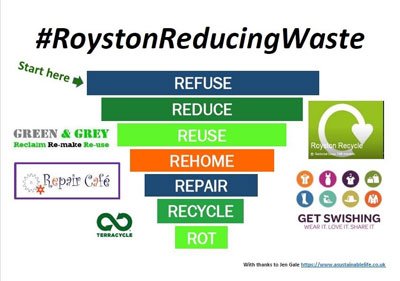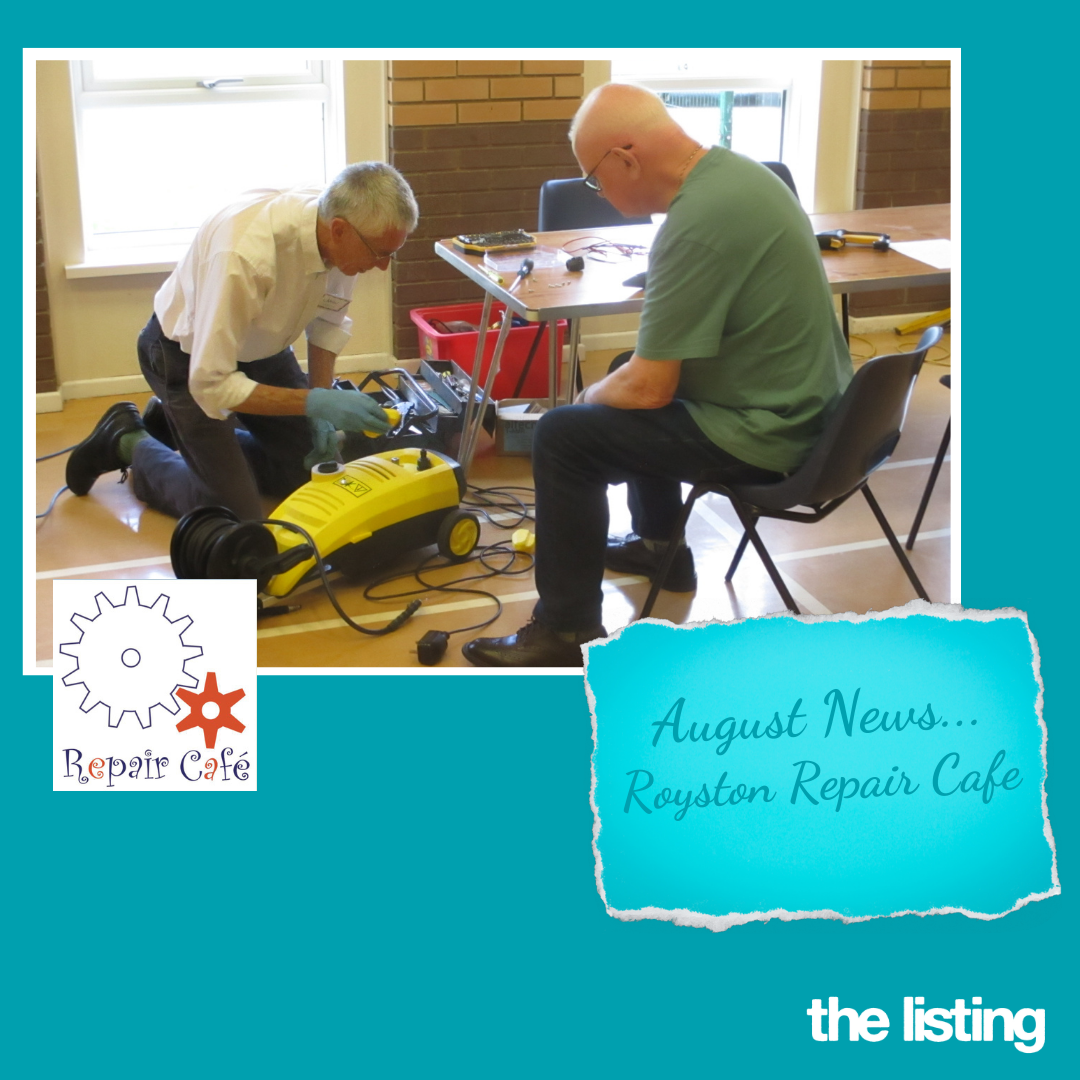Royston reducing waste – sharing, repairing, re-using
There really is no planet B, so now in the time to join millions of others locally, nationally and internationally tackling what many now describe as our climate emergency. This is a particularly busy month with many opportunities to get on board to cut waste.
2nd – 6th September is Zero Waste Week and there’s lots to help you reduce waste, save money and preserve resources – guides, lesson plans, workshops and online courses – not just for the Week, but forever!
Also encouraging us to rethink our consumption are Oxfam with their Secondhand September campaign throughout the month, inviting you to pledge not to buy any new clothes for 30 days. The waste that follows the ‘fast fashion’ trend is mind-boggling in scale. Every week in the UK 11 million items of clothing go to landfill; that’s an annual total equal to the weight of New York’s Empire State Building.
At the end of September, there’s a local focus on celebrating and protecting our precious earth with the Royston Arts Festival from Thursday 19th to Sunday 29th. It promises to be a rich mix of music, art, and performance, but this year the theme of ‘Our Planet’. Be inspired at the Community Arts Event and look out for the ‘Royston Reducing Waste’ stall, and the plastic-free, planet-kind products offered by Anahata – a new venture launched by a Royston resident.
For many, a barrier to taking that first step to conserve resources and reduce waste is a sense of helplessness – not knowing where to start and, perhaps, feeling the problems are too immense for individuals to make a real difference. But there are ‘quick wins’ to be made (see link at the bottom of this piece) and you are not alone; a number of local initiatives are already demonstrating practical, creative (and fun!) ways to consume less and keep items out of landfill.
Say yes to less – share
For nearly 15 years, and without spending a penny, the Royston Recycle online platform has been promoting and enabling the free exchange (freecycling) of unwanted items – from children’s toys and equipment, to household items, garden tools and musical instruments. Since December 2004, over 7400 members in and around Royston have posted 97,000 ‘offers’ and ‘wants’ keeping an estimated 45,000 items in use for longer.
The average household owns £4,000 worth of clothing, 30% of which has not been worn in the past year. Estimates put the value of this unused clothing at around £30 billion. This autumn, the organisers of Royston Recycle plan to launch Royston Swish – clothing exchange events to refresh wardrobes without costing the earth.
Don’t despair – repair!
Another offspring on the Royston freecycling initiative is Royston Repair Cafe – a series of free community repair events held every three months to keep more items in use for longer. Owners of broken items have discovered ‘the joy of fix’ and, since February 2014, volunteer repairers have mended over 50% of the 640 items brought in for free assessment. Everything from clothes and books to bikes and electrical equipment have been given a new lease of life to the delight of their owners – saving their money and the planet.
Creative ways to re-use materials
When it comes to crafting someone else’s waste materials into one-off additions to homes and gardens, the new kids on the block (although the two guys behind it could hardly be described as ‘new kids’!) are Green & Grey. Mainly using pallet wood (but not averse to working with driftwood, wellington boots and bike parts) the pair are using their interest in ‘making stuff’ from reclaimed materials to promote the value of original hand-made items in our increasingly mass-produced consumer society.
From sharing, repairing and reusing to recycling, and Terracycle – an international recycling company – have teamed up with residents in and around Royston to support their efforts to recycle ‘difficult materials’ – including soft plastics, toothbrushes and crisp packets. Look out for a growing number of collections points around town and help raise money for charities as you make the extra effort to protect our planet for generations to come














